ResMed Pty Ltd is updating the safety information and warnings for their masks that have magnets. These masks are used to deliver air to a patient from a positive airway pressure (PAP) device.
If the magnets come too close to certain implanted devices, the implants may not work as they should.
Device description
The affected masks are:
- AirFit N10
- AirFit N10 for Her
- AirFit N20
- AirFit N20 for Her
- AirTouch N20
- AirTouch N20 for Her
- AirFit F20
- AirFit F20 for Her
- AirTouch F20
- AirTouch F20 for Her
- AirFit F30
- AirFit F30i
Images of the masks are shown below, with the magnetic components circled.
| Products affected | Location of model name | Location of magnets |
|---|---|---|
|
|
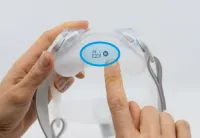
|
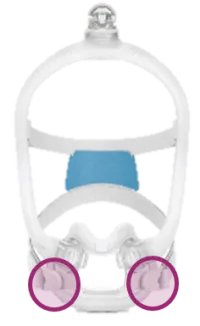
|

|
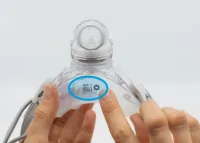
|
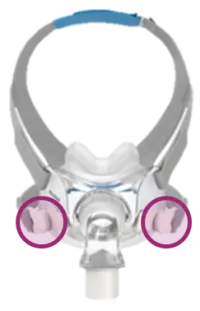
|

|
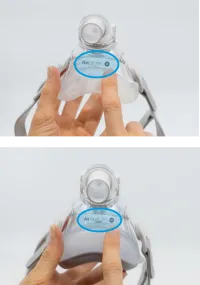
|
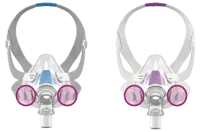
|

|
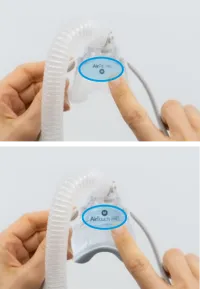
|
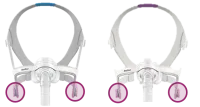
|

|
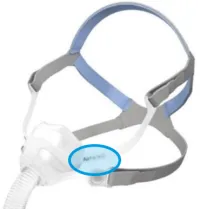
|
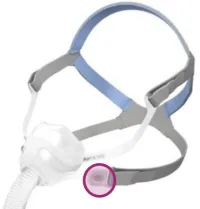
|
What do I need to do?
- Check if you use one of these masks.
- If you use one of these masks, review the list of implantable medical devices below.
- If you or anyone in close physical contact while using the mask (e.g. bed partner) have any of the listed implantable medical devices, you should make sure the mask doesn’t come close to them (keep at least 15 cm away from their implants) and contact your mask provider about using a different mask.
- If an alternative mask is not available, consult your physician/doctor for appropriate next steps regarding your therapy.
Magnets interfere with the following implantable devices
If you, your household members or caregivers have the following implanted medical devices, and you have a mask with magnets, you need to know there are associated health risks.
- Active medical implants that interact with magnets i.e.
- Pacemaker
- Implantable cardioverter defibrillators (ICD)
- Neurostimulators
- Cerebrospinal fluid (CSF) shunts
- Insulin/infusion pumps)
- Metallic implants/objects containing ferromagnetic material i.e.
- Aneurysm clips/flow disruption devices
- Embolic coils
- Stents
- Valves
- Electrodes
- Implants to restore hearing or balance with implanted magnets.
- Ocular implants
- Metallic splinters in the eye
What do prescribers/physicians need to do?
- Patients with affected masks will be contacted by their mask provider notifying them of updated labelling.
- If an alternative mask is not available, the patient is being advised by their mask provider to contact their physician on appropriate next steps regarding their therapy.
- Advise your patients on alternatives on a case-by-case basis.
- Discuss with your patient whether anyone in close physical contact while using the mask (e.g., bed partner) have implants or metallic medical devices. When close to the patient, others may also be at risk from the magnets.
What are the risks?
The risk is that the magnetic field may cause active implantable devices to malfunction or result in movement of other implantable devices which has the potential to lead to serious injury or death.
What ResMed is doing?
ResMed is revising their instructions (IFUs) to include additional contraindications and warnings against use with the wide range of medical devices listed above.
Non-magnetic replacement masks will be made available.
Further information
Contact your mask provider for alternative mask options, or for more information regarding these changes please visit www.resmed.com/magnetupdate
Reporting problems
Consumers and health professionals are encouraged to report problems with medical devices. Your report will contribute to our monitoring of these products. For more information see the TGA Incident Reporting and Investigation Scheme (IRIS).
We cannot give advice about an individual's medical condition. You are strongly encouraged to talk with a health professional if you are concerned about a possible adverse event associated with a medical device.

